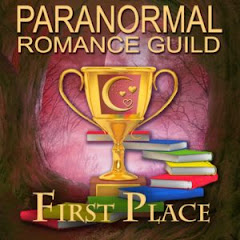 |
| Sharon, Age 3, with Cousin Gloria |
In 1954, at the age of three years old, my mother put me on a plane in Washington, D.C., and sent me to Connecticut to live with my deaf, non-speaking grandmother, my aunt, uncle, cousin, two Chihuahuas, and a parakeet. At night, I would cry because I missed my family. As I sobbed, my grandmother would take me in her arms and hug me, making grunting noises. I’d fall asleep to her wordless lullaby of love, wondering if I’d ever see my family again, not knowing that my parents were divorcing.
A year after being shipped north, I was reunited with my family. Another year later, we moved out of my aunt’s basement and into government subsidized housing. Now when we visited my aunt’s house, I had to share my grandmother with my siblings. On birthdays and graduations, she created scavenger hunts for us, leaving a trail of written clues. She must have spent hours planning the hints, writing them out in her beautiful calligraphy, and placing them throughout the house.
As I grew older and wrestled with the demons of poverty and abuse, my desire to break away from my home life dwarfed my relationship with my grandmother. Opportunity arrived in the form of a large scholarship to a university in Texas, over a thousand miles away from my mother. During the first semester of my freshman year, my grandmother became ill and died at home at the age of eighty-nine. Claiming that she didn’t want to “disrupt” my studies, my mother withheld the knowledge until I came home months later. I was devastated. I never had the chance to say good-bye to the woman who loved me unconditionally.
As I hit my fifth decade, I began to reflect on my life and lack of closure regarding her death. I felt compelled to research my family tree, beginning with my grandmother. My only clues were embedded in childhood memories of kitchen table conversations between my mother and aunt. The family legend, told and re-told, with hand-signed consultations for verification, was that my grandmother was born hearing and healthy to a wealthy family.
“Oh yes, her people were landowners,” my aunt said.
“She had pet peacocks,” my mother added, “and a pet pig that came when she clapped her hands.”
“She came down with spinal meningitis when she was three. If her parents hadn’t been so rich, she would have died,” my aunt said between puffs on her cigarette.
“Grandma’s parents sent her off to a boarding school for ladies,” my mother recalled. “She was too wealthy to be with the other girls, so she stayed with the teachers.”
As I searched for family records, calling my sister and brother for confirmation, tantalizing tidbits emerged.
“After she graduated, she went to work in Washington, D.C., addressing envelopes for a Congressman because she had such beautiful handwriting,” my sister said.
“Grandma and Grandpa were fixed up on a blind date. He was a wild young man with a motorcycle, a graduate of Gallaudet University. He was deaf from scarlet fever.” My brother, the oldest child, recalled vividly. “They fell in love and married against her family’s wishes. She was supposed to go back to Kentucky and marry a cousin, but she wouldn’t leave her gardener.”
Oral history wasn’t much to go on, but it was a start. It helped that I recalled the name of the town where we’d visited another uncle, aunt, and cousin on the way to Texas: Stanford, Kentucky. Using an online genealogy site, I was able to see U.S. Census records dating as far back as the 1700’s. I rooted around in the 1800’s with no luck. One night, I received an excited call from my best friend from high school and genealogy genius. By searching in an online National Society Daughters of the American Revolution registry, and entering two of my family names, Engleman and Harris, my friend found my Stanford, Kentucky ancestors and my family lines tracing back to the Revolutionary War. Thanks to the DAR, I had the first clues in my very own family scavenger hunt.
The elusive “ladies’ school for the deaf kept me awake at night. More weeks, more digging, more walls. After months of research, I was ready to quit. But I kept feeling as if my grandmother was standing behind me at the computer, smiling and urging me to find her. At last, I found the Kentucky School for the Deaf (KSD), in Danville, Kentucky. It was the first public school for the deaf in the United States, originally called the Kentucky Asylum for the Tuition of the Deaf & Dumb when it was built in 1823. I emailed the school, asking for information on a possible alumna named Bessie Engleman.
In the meantime, I kept mousing around in the 1900 Census files for Danville and randomly selected Enumeration District 88 (ED 88). When I retrieved the image, I discovered that the majority of people counted in ED 88 were enrolled at the Kentucky Institute for Deaf Mutes. My eyes adjusted to the old-fashioned script of the census taker, and there she was on line 19: Engleman, Bessie, White, Female, born in 1883. Within days of that find, a KSD staff member sent me an email telling me he had found her original admission card.
Bessie Engleman was student number 933 admitted to KSD. The daughter of George and Susan Harris Engleman became deaf from meningitis at sixteen months, not age three, as the family legend told. The middle child in a three girl family, KSD admitted her from Lincoln County, Kentucky when she was eight years old in 1889 and graduated her in 1902 when she was twenty-one years old. Nine years later, she married Carl E. Rhodes on September 20, 1911 and lived in Washington, D.C. in 1918.
I now had enough information to find my great-grandparents, my great-great-grandparents, and beyond, because all my grandmother’s “people” lived in Lincoln County, Kentucky—and married their cousins. In some census records, I found Harris and Engleman in-laws, brothers, sisters, and cousins, all living in the same household.
My curiosity was piqued. If the oral history about my grandmother was fairly accurate, why wouldn’t the part about my grandfather be true, too? Gallaudet University’s alumni office found my grandfather’s records on microfilm. According to the Secretary of the Department of the Interior, my grandfather, Carl E. Rhodes, was deemed a “…proper person to be received into the Columbia Institution for the Deaf and Dumb, and to be instructed and maintained therein at the expense of the United States…” The same department responsible for the welfare of Native Americans in the 1800’s was responsible for my grandfather’s education. He attended the Kendall School from 1892 to 1903, but did not attend Gallaudet University, contrary to family stories. And, he wasn’t deaf secondary to scarlet fever. Congenitally deaf, a midwife home-delivered the sixth child, Carl E. Rhodes, to a grocer named James H. Rhodes and his wife, Elizabeth Cockrell Rhodes: my great-grandparents.
Despite their incredible obstacles in life, my grandparents attended school, graduated, obtained good jobs, weathered the anger of my grandmother’s wealthy family, and raised six hearing and speaking children to become productive members of society. During the depression and beyond, my grandfather was employed by the federal government as a gardener, often tending to the roses and other plantings at the White House. My brother owns a book, handed down from my grandmother, with a photograph of my grandfather working as the Assistant Head Gardener in the U.S. Botanical Gardens.
What predicts who will be disabled in life? What foretells if a disability will cripple an individual emotionally? When I was a little girl and refused to cave in under my mother’s abuse, she would say I was stubborn, “just like your grandmother.” Instead of being humiliated, I was proud to be linked in some clear way to the woman who raised me, who loved me, and whom I adored. Today, looking back across half a century, I have a few clues to her inner strength and resilience. When I think of her, which is often, I thank her for teaching me that having a disability does not mean inability and for holding me tight and rocking me to sleep with her lullaby of wordless love.

















































